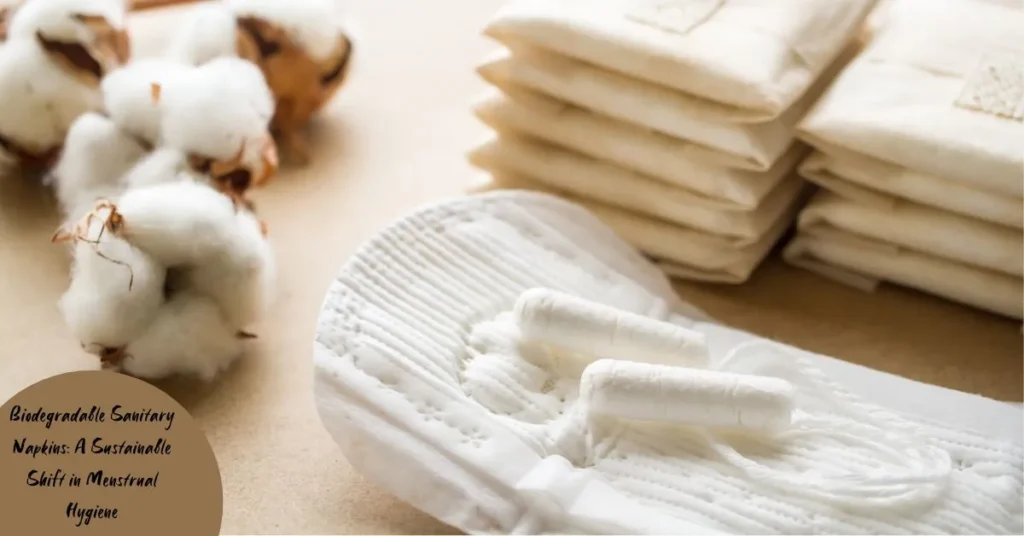In India, menstrual hygiene has historically been a subject shrouded in stigma and silence. However, in recent years, there has been a progressive shift towards more sustainable and health-conscious practices, with biodegradable sanitary napkins gaining significant attention. This shift not only promises to improve women’s health but also aims at reducing the environmental impact caused by non-biodegradable menstrual products.
The Problem with Traditional Sanitary Napkins
Traditional sanitary napkins are primarily made from non-biodegradable materials like plastic polymers and superabsorbent polymers (SAPs). A single conventional sanitary pad can take up to 500 to 800 years to decompose. With millions of women using these pads monthly, the environmental burden is colossal. In India, where waste management systems are often lacking in efficiency, the impact is particularly severe, leading to clogged waterways, soil pollution, and adverse effects on wildlife.
The Rise of Biodegradable Options
Recognizing the urgent need for sustainable alternatives, several Indian companies and startups have begun to produce biodegradable sanitary napkins. These products are typically made from plant-based materials such as banana fiber, bamboo fiber, and corn starch. They are free from chemicals, dyes, and fragrances, making them not only environmentally friendly but also healthier for users.
Advantages of Biodegradable Sanitary Napkins
- Environmental Impact: These napkins decompose within six months to a year, significantly reducing landfill waste. Their production processes also tend to be less polluting.
- Health Benefits: Free from synthetic materials and chemicals, biodegradable pads reduce the risk of infections, skin irritation, and other health issues associated with their plastic-based counterparts.
- Support for Local Economies: Many biodegradable pad manufacturers source their materials from local farmers and producers, promoting sustainable agriculture and boosting local economies.

Challenges to Adoption
Despite their benefits, the adoption of biodegradable sanitary napkins in India faces several hurdles:
- Cost: Biodegradable options are often more expensive than conventional pads, making them less accessible to the economically disadvantaged segments of society.
- Awareness and Accessibility: There is still a significant lack of awareness about these sustainable options. Additionally, distribution channels are limited, particularly in rural areas.
- Cultural Barriers: Menstrual taboos and stigmas still prevalent in many parts of India can hinder discussions about menstrual health and sustainable practices.
Also Read: Empowering the Boss Lady: Breaking Barriers and Shaping the Future
Government Initiatives and Non-Profit Efforts
The Indian government, along with various NGOs, has been actively promoting menstrual health and sustainability. Initiatives like providing biodegradable pads at subsidized rates and incorporating menstrual education into school curriculums are gradually making an impact. Campaigns and workshops aimed at breaking the silence around menstruation are also gaining momentum.
Biodegradable sanitary napkins represent a hopeful stride towards sustainable menstrual hygiene in India. While there are challenges in terms of cost and cultural acceptance, the environmental and health benefits they offer make them a crucial alternative to traditional products. With continued effort from the government, NGOs, and social enterprises, the future of menstrual hygiene in India looks not only more sustainable but also more inclusive and health-focused. This is a pivotal moment for both women’s health and environmental stewardship in India.


